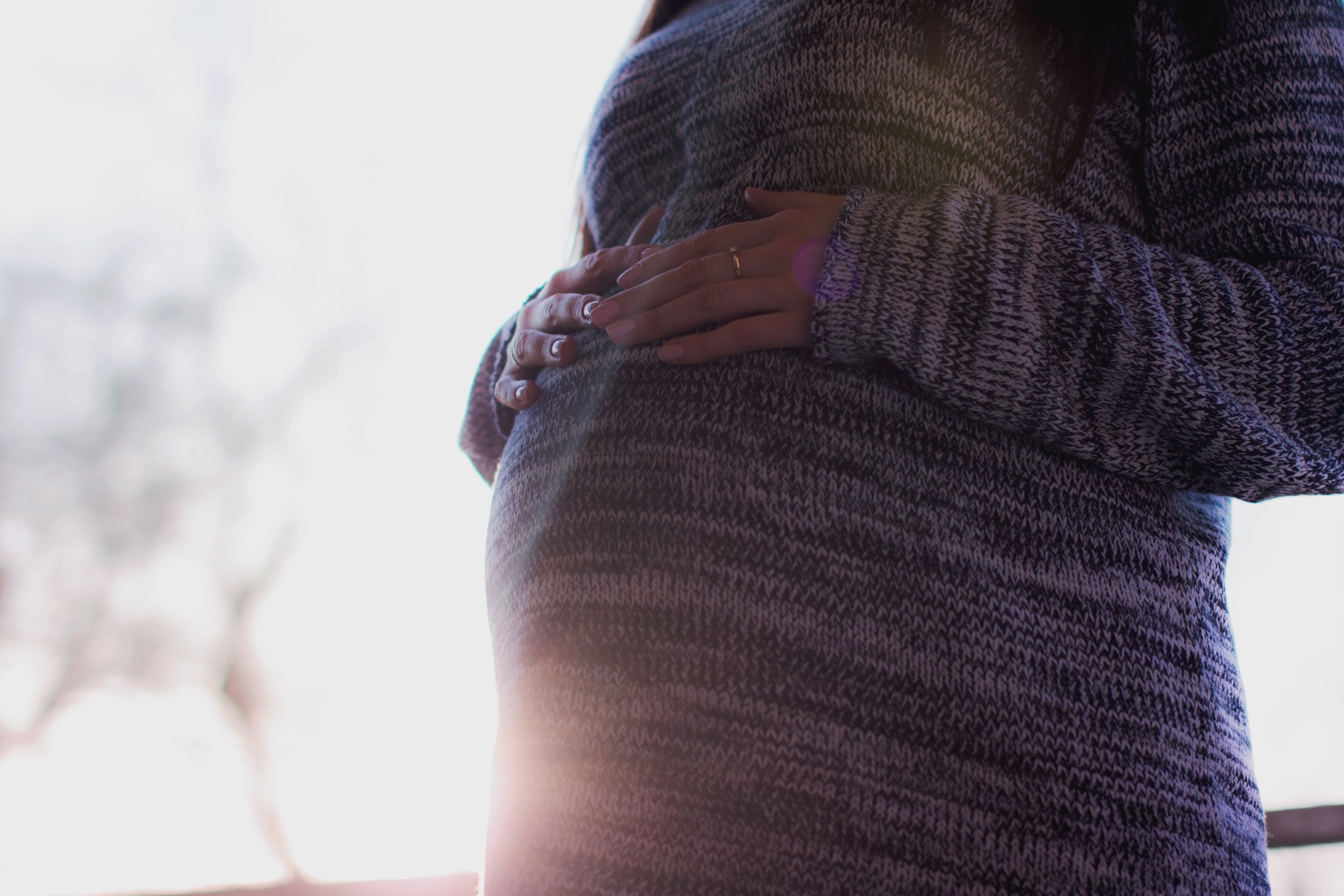Pregnancy, Body Image, and Eating Disorders
For many women pregnancy can trigger body image concerns. Learn more about how body dissatisfaction and disordered eating behaviors may arise for new mothers.
by: Kristin Burmeister
Women continually face social pressures to attempt to conform their bodies into an almost impossible ideal. Gaining weight almost always causes women to stray away from the societal ideal causing body image dissatisfaction. One of the only times when gaining weight is considered permissible by society is during pregnancy. The biological need for weight gain during pregnancy for the health of a baby overrides societal ideals. However, as soon as the child is born the weight gain is no longer seen as excusable. Cultural pressures for women to lose weight immediately after giving birth causes body dissatisfaction post pregnancy leading to negative effects for new mothers.
Women encounter a variety of body image obstacles during the postpartum period. Pregnancy requires weight gain to help provide for and protect a growing fetus. Doctors recommend women gain twenty five to thirty pounds over the course of pregnancy [1]. During pregnancy women are able to excuse their weight gain to pregnancy to avoid societal judgment [2]. However, after giving birth many women feel they no longer have an ‘excuse’ to be larger resulting in a decrease in body satisfaction. Body image studies following women after pregnancy reflect these feelings. Many studies have found that over the course of the entire pregnancy experience body image is the worst postpartum, specifically six months postpartum [3]. These body image issues can lead to mental health issues such as postpartum depression and eating disorders.
Negative body image has a strong influence on postpartum depression. Postpartum depression is “depression affecting women during pregnancy or within the first 12 months following delivery” which arises for a variety of reasons and has significant impacts on mother and child [4]. The disease affects 13-19% of women during the postpartum period [4]. Many studies have found a strong correlation between body dissatisfaction and depression across multiple points during and after pregnancy, with the strongest correlation being during the postpartum period [3]. However, most studies are unable to identify if poor body image increases chances of postpartum depression or vice versa. Depression symptoms correlate greatly with feeling more fat, less fit and attractive, and having weight and shape be more noticeable to women [3]. Increased postpartum depression risk is one of the many negative impacts for mothers resulting from body dissatisfaction following pregnancy.
Poor postpartum body image increases the likelihood of developing an eating disorder or having an eating disorder relapse. Drastic dieting or exercise habits to lost pregnancy weight can develop into eating disorders after pregnancy. However, a relapse from a pre-existing eating disorder is more likely than first developing an eating disorder directly after pregnancy [5]. Many women with eating disorders will often stop symptoms during pregnancy only to have symptoms return postpartum just as strong if not worse. Women likely can stop symptoms for the sake of the health of their baby, however once the child is born the pressure to lose weight leads them to quickly go back to having eating disorder symptoms. Several studies have found return of symptoms after delivery [5]. High risk of relapse post pregnancy even if in remission for a long time before pregnancy due to weight gain, relapse most likely in first six months which is also when postpartum body image is the worst [6]. Poor postpartum body image increases risks for eating disorder symptoms causing a strong decline in women’s physical and mental health.
A variety of interventions could be used to lessen postpartum body dissatisfaction leading to better outcomes for both mothers and their babies. There is a great need for medical professionals to communicate with new mothers about the reality of the postpartum experience. Media often gives inaccurate information to new mothers thus being informs of the natural bodily changes after pregnancy and help elevate body image destress. Many women are shocked and surprised that they do not return to their pre-pregnancy shape quickly, unrealistic expectations about duration of returning to pre pregnancy size leads to negative body image [3]. Knowing certain issues, such as the stomach not returning to normal size right away, are normal can help women feel more comfortable with their postpartum bodies.
Additionally, challenging women’s maladaptive thoughts about body image can help them to not develop a negative body image after pregnancy. For example, challenging the idea that being larger means being less desirable or successful can allow women to see that being larger after pregnancy is not necessarily bad. Lastly, it is vital for women to be assessed for postpartum depression, eating disorders, or other body image issues postpartum to detect problems early. Women who develop issues need to be provided with psychological help as soon as possible to help them recover. By counteracting the cultural ideals that portray a necessity to be thin the body image of women postpartum can be greatly improved.
References:
[1] The American Pregnancy Association. (2015, December 12). Pregnancy Weight Gain -
Weight Gain During Pregnancy. Retrieved from http://americanpregnancy.org/pregnancy-
health/pregnancy-weight-gain/
[2] Rallis, Sofia, Helen Skouteris, Eleanor H. Wertheim, and Susan J. Paxton. "Predictors of Body Image During the First Year Postpartum: A Prospective Study." Women & Health 45.1 (2007): 87-104. Web.
[3] Clark, Abigail, Helen Skouteris, Eleanor H. Wertheim, Susan J. Paxton, and Jeannette Milgrom. "The Relationship between Depression and Body Dissatisfaction across Pregnancy and the Postpartum." Journal of Health Psychology 14.1 (2009): 27-35. Web.
[4] Silveira, Marushka L., Karen A. Ertel, Nancy Dole, and Lisa Chasan-Taber. "The Role of Body Image in Prenatal and Postpartum Depression: A Critical Review of the Literature." Archives of Women's Mental Health 18.3 (2015): 409-21. Web.
[5] Franko, Debra L. "Eating Disorders in Pregnancy and the Postpartum." Psychiatric Disorders in Pregnancy and the Postpartum (n.d.): 179-96. Web.
[6] Ward, V. B. "Eating Disorders in Pregnancy." Bmj 336.7635 (2008): 93-96. Web.
Struggling with negative body image? Our online Body Image Group fosters understanding about how poor body image, lack of sense of self, and low self-esteem impact our identity and make change difficult.
Request information on our new Virtual Body Image Group
This post was written by BALANCE blog intern Kristin Burmeister.
Kristin is a graduate student studying social work at Case Western Reserve Universtiy. Her own recovery journey inspired her to want to help others who struggle with eating disorders. In the future, she hopes to work as a clinical social worker with a focus on eating disorder treatment.


